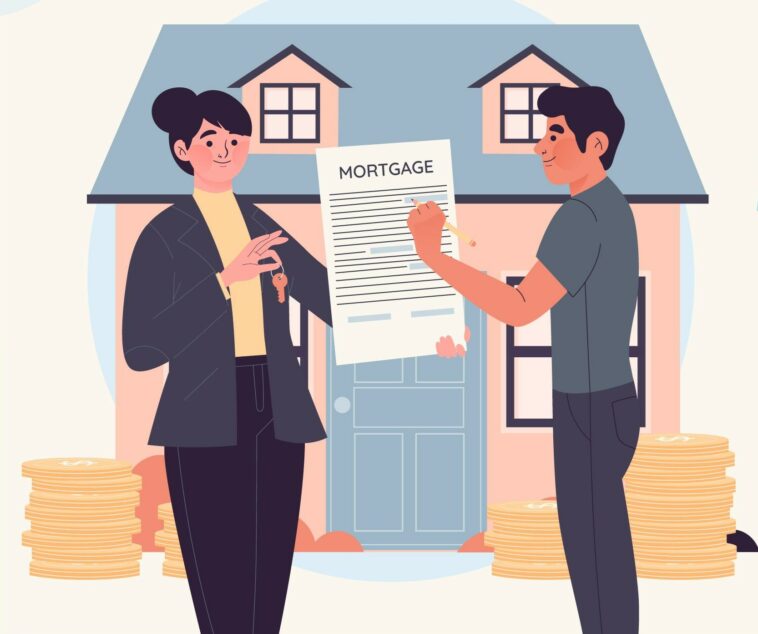Finding the best mortgage rates can save you thousands of dollars over the life of your loan, yet the process of securing those rates can be complex. With interest rates fluctuating and mortgage products varying widely, knowing what to look for and how to qualify for a lower rate is essential. In this guide, I’ll walk you through everything you need to know to secure the best mortgage rates, from understanding what influences these rates to practical tips for preparing your finances and comparing offers effectively.
What Determines Mortgage Rates?
Mortgage rates are influenced by several factors, many of which are out of a borrower’s control. However, by understanding what affects these rates, you can make strategic choices to secure a more favorable rate.
- Economic Factors: Mortgage rates are closely tied to broader economic indicators like inflation, the Federal Reserve’s interest rates, and employment rates. In a strong economy, rates tend to rise as demand for homes increases. In contrast, during economic downturns, rates may drop to encourage borrowing.
- Loan Type and Term: Fixed-rate mortgages typically have higher interest rates than adjustable-rate mortgages (ARMs) at the outset because they lock in a rate for the entire term. The loan term also matters: 15-year loans usually have lower rates than 30-year loans.
- Down Payment: Lenders often offer lower rates to borrowers who can make a larger down payment. A higher down payment reduces the lender’s risk and may qualify you for a lower rate.
- Credit Score: One of the biggest influences on your mortgage rate is your credit score. Borrowers with high credit scores are viewed as lower-risk, so they often qualify for the lowest rates available.
- Loan Amount and Property Location: Loan size and location also play a role in determining rates. Jumbo loans (those that exceed conforming loan limits) typically come with higher rates. Rates may also vary based on regional factors, with certain areas having higher average rates due to local market dynamics.
Understanding these factors can give you a clearer picture of where you stand and what steps you can take to improve your chances of securing a competitive rate.
Fixed-Rate vs. Adjustable-Rate Mortgages: Which Offers the Best Rate?
When looking at mortgage rates, it’s important to understand the differences between fixed-rate and adjustable-rate mortgages (ARMs), as each has unique pros and cons.
Fixed-Rate Mortgages
With a fixed-rate mortgage, the interest rate remains constant for the entire loan term, which can be 15, 20, or 30 years. Here are some advantages:
- Predictable Payments: Since your rate doesn’t change, your monthly payments remain stable, making it easier to budget.
- Protection Against Rising Rates: If rates rise in the future, your loan rate remains unaffected.
However, fixed-rate mortgages often start at a slightly higher interest rate than ARMs, which means higher initial payments.
Adjustable-Rate Mortgages (ARMs)
An ARM usually starts with a lower rate than a fixed-rate mortgage, which can be an attractive option if you plan to sell or refinance within a few years. The interest rate is fixed for an initial period (usually 5, 7, or 10 years) and then adjusts periodically based on the market.
- Lower Initial Rates: You may enjoy a lower rate for the first several years, saving you money if you plan to move or refinance before the rate adjusts.
- Potential for Decrease: If rates fall, your rate may decrease with an ARM, potentially lowering your monthly payment.
However, ARMs carry the risk of rate increases after the initial period, which could mean higher payments down the road. Carefully consider how long you plan to stay in the home and weigh the potential cost savings against the risk of future rate adjustments.
How to Qualify for the Best Mortgage Rates
Qualifying for the best mortgage rates requires preparation and a solid financial profile. Here are the key steps to take:
- Check Your Credit Score: A higher credit score can qualify you for lower mortgage rates, so check your credit report well in advance and work on improving it if needed. Aim for a score of at least 740 to access the best rates.
- Save for a Larger Down Payment: A down payment of 20% or more not only reduces your monthly payments but also lowers your loan-to-value (LTV) ratio, which can result in a more favorable rate.
- Reduce Debt: Lenders look at your debt-to-income (DTI) ratio to gauge your ability to make mortgage payments. Aim for a DTI ratio below 36% to improve your eligibility for better rates.
- Steady Employment and Income: Having a stable job history and reliable income reassures lenders of your ability to make payments, which can help secure a lower rate.
Taking these steps can significantly improve your profile and increase your chances of qualifying for the most competitive mortgage rates available.
Shopping Around for the Best Mortgage Rate: Where to Start
Comparing rates from multiple lenders is one of the most effective ways to secure a lower mortgage rate. Here’s how to go about it:
- Online Mortgage Rate Comparison Tools: Websites like Bankrate, NerdWallet, and Zillow offer comparison tools that allow you to see a range of rates from different lenders. These platforms are a great starting point to understand what rates you might qualify for.
- Contact Local Banks and Credit Unions: Local lenders often offer competitive rates, especially credit unions, which tend to have lower overhead costs. Contact a few local banks and credit unions for rate quotes.
- Speak to a Mortgage Broker: Mortgage brokers have access to a network of lenders and may be able to find rates that aren’t widely advertised. Brokers can save you time and effort by presenting you with tailored options based on your needs.
Once you’ve gathered several quotes, carefully compare the terms, including any fees and closing costs, to ensure you’re making a true apples-to-apples comparison.
Locking in Your Mortgage Rate
After you’ve found a great rate, consider locking it in to protect against rate increases during the closing process. A rate lock guarantees your rate for a specified period, typically 30 to 60 days, though longer lock periods are available.
- Benefits of a Rate Lock: A rate lock protects you if rates rise before closing, ensuring you pay the agreed-upon rate.
- When to Lock: Lock your rate once you’re confident you’ll proceed with the lender and closing will occur within the lock period.
Some lenders also offer a “float-down” option, allowing you to lock a rate with the flexibility to take a lower rate if market rates fall before closing. Check with your lender to see if this option is available.
Current Mortgage Rates: What Can You Expect?
Mortgage rates fluctuate regularly, so it’s essential to stay updated on current trends. As of [today’s date], here’s a general idea of average mortgage rates based on loan types:
- 30-Year Fixed-Rate Mortgage: Typically around X% – X%.
- 15-Year Fixed-Rate Mortgage: Generally lower, ranging from Y% to Y%.
- 5/1 Adjustable-Rate Mortgage (ARM): Often starts at a lower rate, approximately Z%.
Keep in mind that these rates are just averages, and your actual rate will vary based on factors like credit score, down payment, and location.
Conclusion: Taking Control of Your Mortgage Rate
Securing the best mortgage rate requires a combination of preparation, research, and timing. By understanding what influences mortgage rates, improving your financial profile, shopping around, and considering the type of mortgage that best suits your needs, you can set yourself up for success. Whether you’re a first-time homebuyer or looking to refinance, taking these steps will help ensure that you find a mortgage rate that aligns with your budget and long-term financial goals.
FAQs About Finding the Best Mortgage Rates
- What is considered a good mortgage rate?
A good mortgage rate varies depending on economic conditions, loan type, and borrower profile. Generally, rates below the current national average are considered favorable. - How can I improve my chances of getting a low mortgage rate?
Improve your credit score, save for a larger down payment, reduce debt, and establish stable income. These factors will enhance your eligibility for lower rates. - How often do mortgage rates change?
Mortgage rates can change daily due to market conditions. It’s a good idea to monitor rates regularly or work with a lender to lock in a favorable rate. - Is it better to go with a fixed or adjustable-rate mortgage?
It depends on your financial situation and goals. Fixed-rate mortgages offer stability, while adjustable-rate mortgages can be cost-effective if you plan to sell or refinance within a few years.
With the right approach, securing a competitive mortgage rate is entirely achievable. Remember to stay informed, improve your financial profile, and compare offers to find a mortgage rate that’s right for you.



